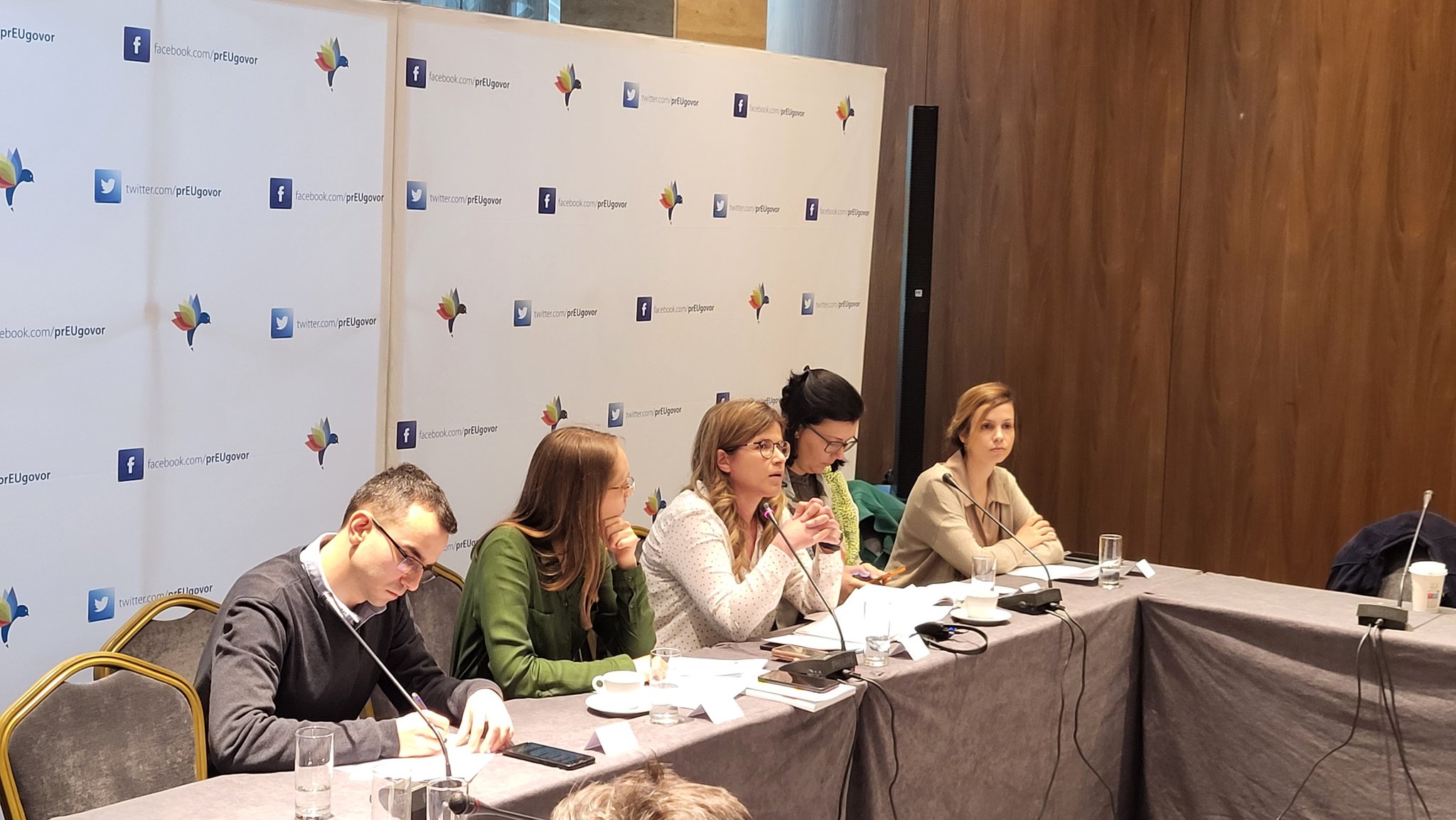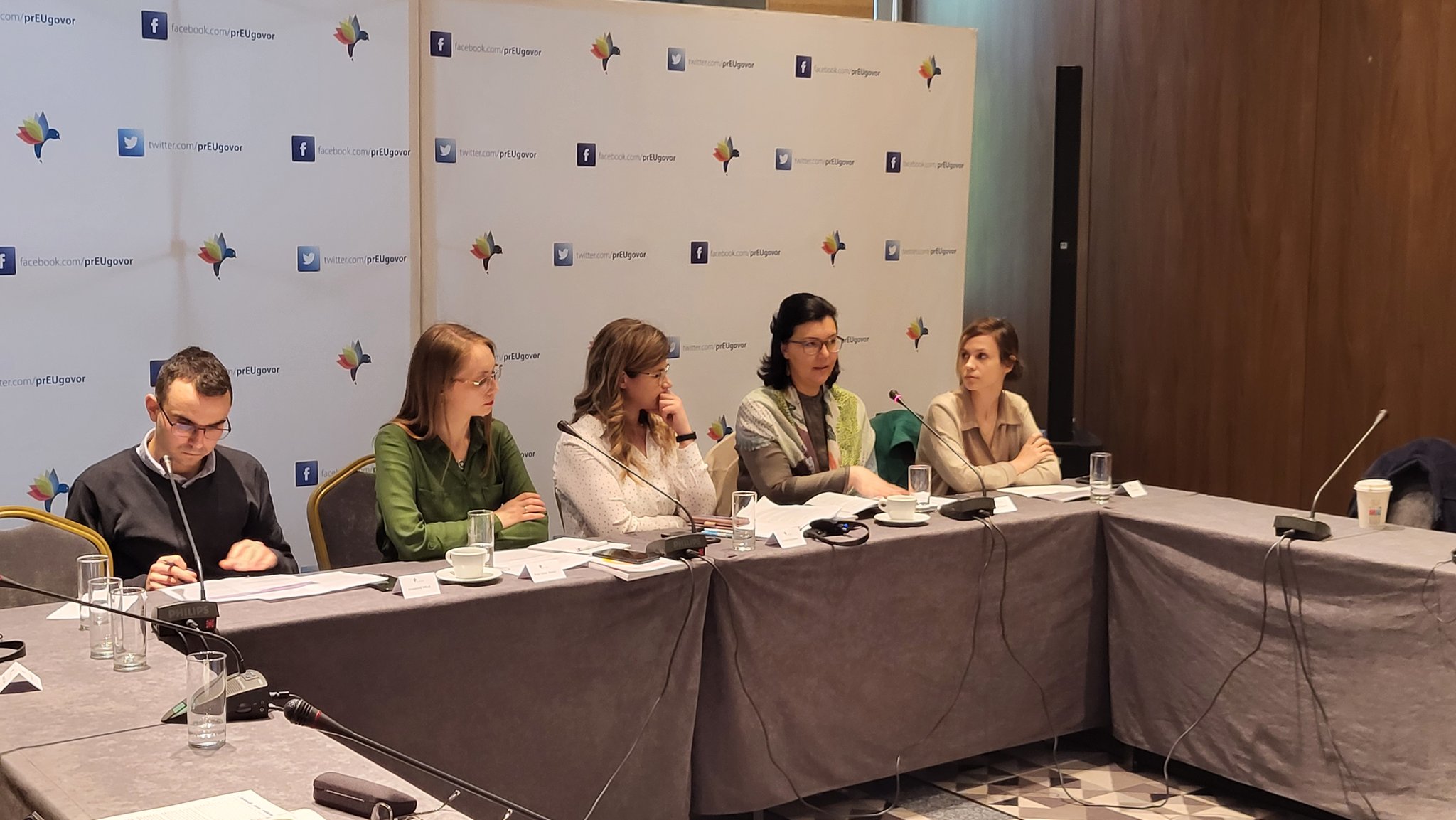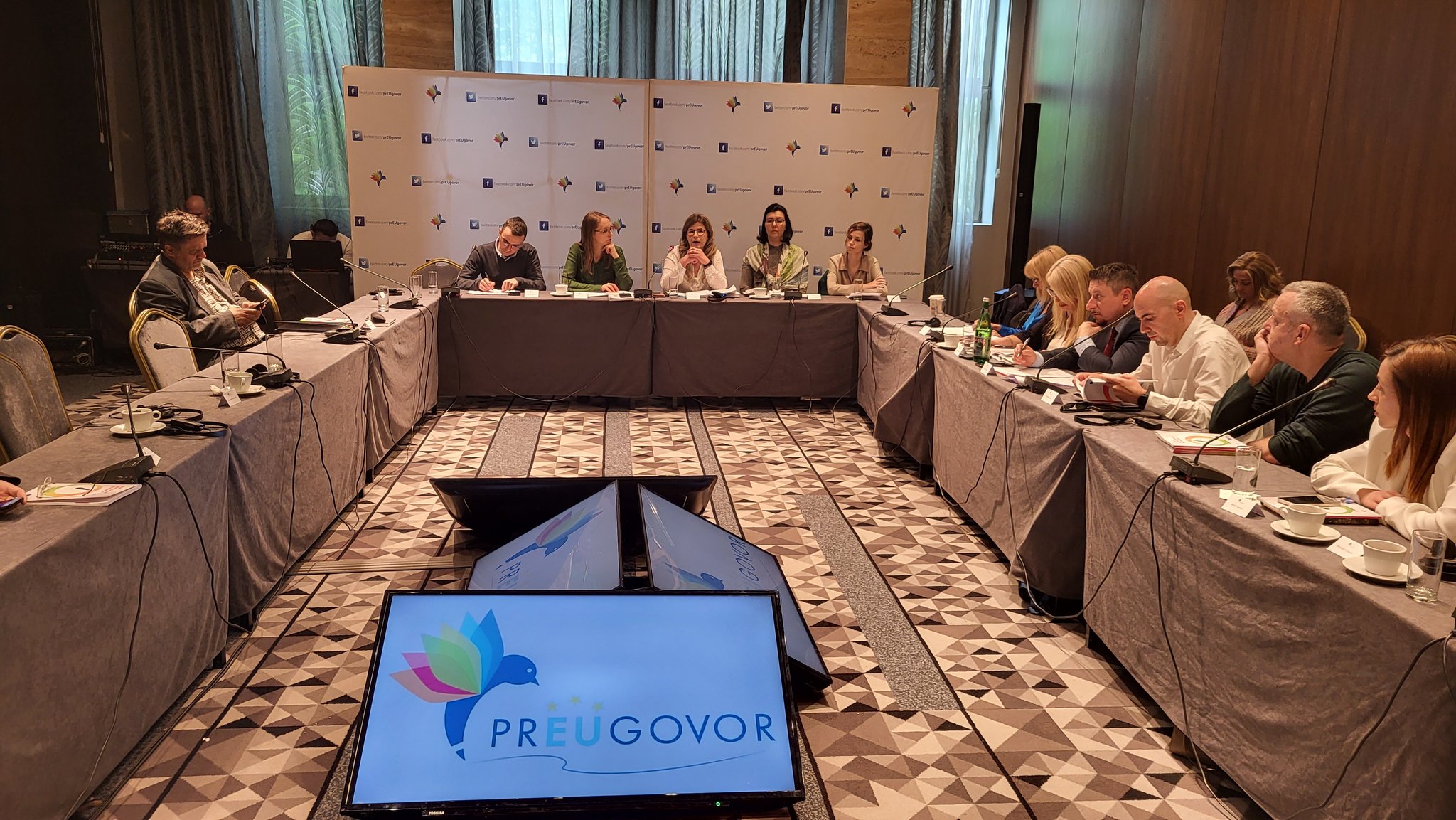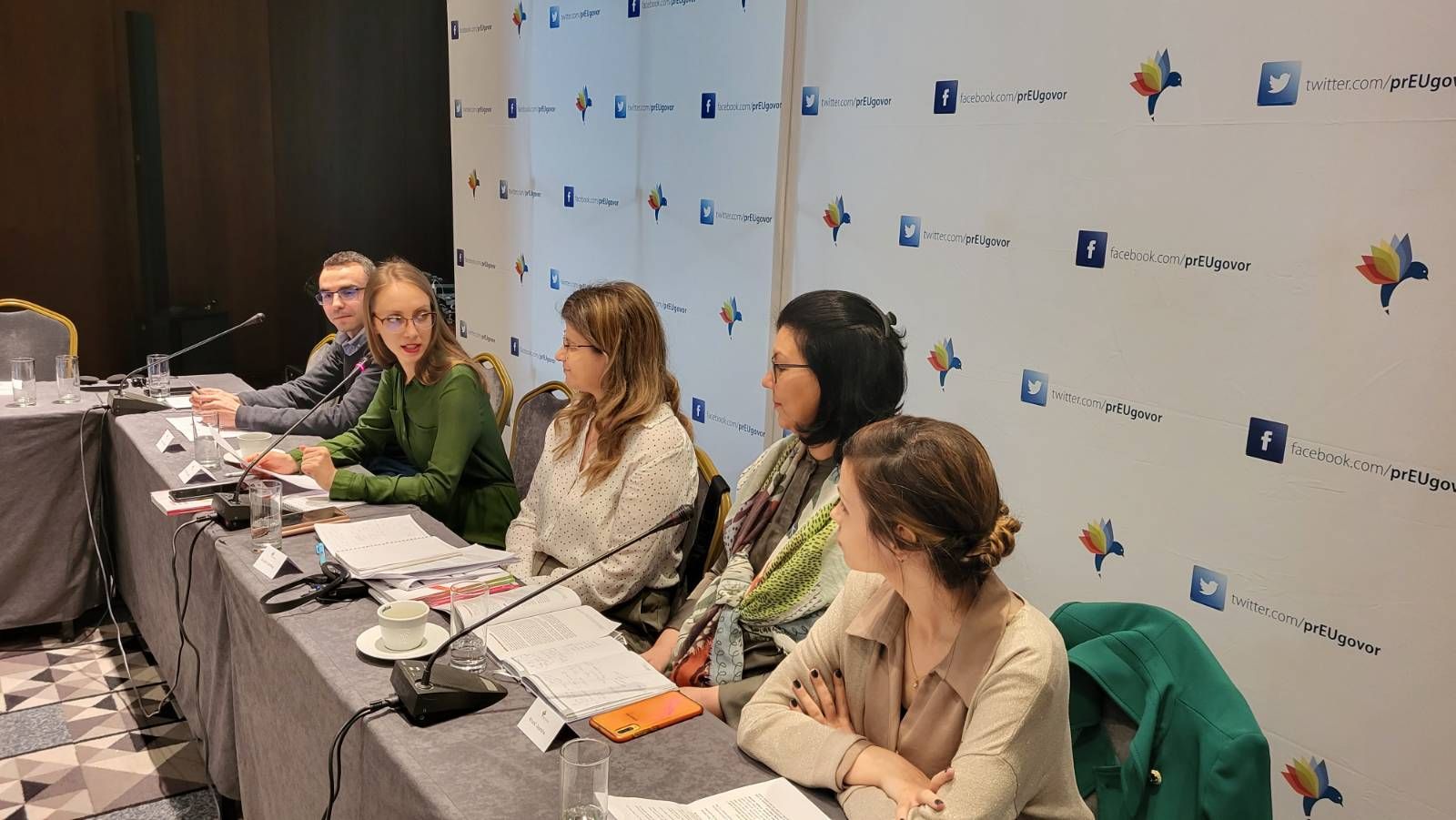Due to limited capacities, independent institutions rely on non-governmental organizations in their work with vulnerable groups. On the other hand, the Internal Affairs Sector, despite greater resources, cannot boast of better results, it was concluded at the second panel of the presentation of the "Institutional Barometer 3.0" of the prEUgovor coalition on April 20 at the Metropol Palace Hotel in Belgrade.
The second part of the panel on the occasion of the presentation of the Institutional Barometer 3.0 was dedicated to Chapter 24 (Internal Affairs), and Gordana Grujičić from Group 484 opened the discussion with an analysis of the activities of the Commissariat for Refugees and Migration.
Migration is an area where civil society and the Government cooperate best
"What I would single out when it comes to accommodation, with the support of the international community, is the improvement of accommodation capacities in terms of structure and human resources, as well as in the segment of equalizing service standards in reception centers," said Grujičić. This year, for the first time, three programs for migration management were accredited at the National Academy of Public Administration, which will strengthen institutional capacities in migration management. Unlike some other institutions, the Commissariat for Refugees and Migration participates in a diversified circle of coordination mechanisms and specific contributions and results can be seen.
Jelena Šurlan from the Commissariat for Refugees and Migration added that migration is where civil society and the Government cooperate best. "Through the crisis of the previous years, we were referred to each other, so together we built this system that we have now." The EU greatly supports our work, and we have also become a member of the European Migration Network. This is the right moment to hear complaints about our work and to improve what we didn't have time for during the previous years of the crisis."

It is necessary to clearly define the role of the Center for the Protection of Victims of Human Trafficking
On behalf of the ASTRA organization, Jasmina Krunić and Kristina Topić spoke on the panel about the analysis of the Center for the Protection of Victims of Human Trafficking.
"The Center for the Protection of Victims of Trafficking in Human Beings has a very ambitious task to deal with the identification of victims, their needs, create protection plans, coordinate their support with other institutions and follow the victims through the system", stated Jasmina Krunić and concluded that it is necessary to communicate what the Center does - coordination or services, as well as to strengthen capacities to have enough professional workers.
Kristina Topić stated that the Center established that support to the shelter is provided by both specialized non-governmental organizations and the Red Cross, not only for women, but also men, given that there is no accommodation for them in the shelter. "It is necessary to increase the capacities of shelters for the accommodation of women victims, as well as to find a solution for emergency accommodation for child victims of human trafficking." When it comes to male victims of human trafficking, we need to work together to find funds and provide accommodation for them," Topić emphasized.
The acting director of the Center for the Protection of Victims of Human Trafficking, Aleksandra Ljubojević, stated that in 90% of cases, she agrees with the presented analysis since she has objections to the entire system. "It would be best if Serbia had a shelter for child victims of human trafficking, but the problem is financing and hiring new people." Now we have an insufficient number of employees in the shelter." Ljubojević emphasized the importance of cooperation with NGOs and partnership on projects since the Center does not have budget funds for emergency aid.

Despite the enviable capacities, the results of the work of the Internal Control Sector have not improved
Miloš Jovanović, a junior researcher at the Belgrade Center for Security Policy, presented crucial data from the analysis of the work of the Internal Control Sector of the Ministry of Internal Affairs.
"Although the Internal Control Sector of the Ministry of Internal Affairs has the largest number of employees since its establishment, this has not contributed to the improvement of its operational work, even though it has sufficient technical and financial resources," Jovanović added that Serbian citizens are confused by the fact that there are many internal control mechanisms in the Ministry of Internal Affairs. If the tools were unified, citizens would know exactly to whom they can report illegal and unprofessional police behavior.
Zdravko Stojov, acting Head of the Internal Control Sector emphasized that the Ministry of Internal Affairs is firmly committed to strengthening the rule of law in the Republic of Serbia and briefly presented last year's SUK results.
"The Internal Control Sector controls police officers, and to prevent corruption, preventive activities such as integrity tests, corruption analysis, and asset checks are carried out. Police officers and other Ministry of Internal Affairs employees against whom criminal charges have been filed are mostly accused of corruption, to which about 70% of filed criminal charges relate. Through the open telephone line for reporting corruption and other illegalities in the work of members of the Ministry of Internal Affairs, over 8,700 calls from citizens were received in 2022."
To the recommendation of the pre-agreement that the Internal Control Sector should also hire personnel from outside the police through a public competition, Stojov replied: "For someone to control the work of employees, it is necessary to have detailed knowledge of the areas of work in the units he controls," Stojov concluded. Stojov ended his presentation by saying that lately in the Sector particular emphasis has been placed on the implementation of preventive measures.

